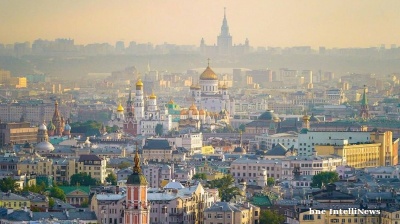Consumer price indices (inflation) in Czechia increased by 2.3% year on year and by 1.5% month on month.
It is the lowest y/y growth since March 21. It is also down 4.6 percentage points on December values, while the inflation growth was 17.5% last January.
“The development came mainly from prices of housing and food and also higher benchmark in the last year,” commented Pavla Sediva of the Czech Statistical Office (CZSO).
The development is still below the 3% expectations of the Czech central bank (CNB) and comes a week after CNB cut the interest rates down by 0.50bp to 6.25% in a most dramatic rate change under the current leadership of governor Ales Michl, who took over in the summer of 2022.
“At the very least, this makes a larger interest rate cut (of 75bp or perhaps even bigger) at the next central bank meeting in March look very likely,” commented Liam Peach, senior Emerging Markets economist.
Domestic analysts were more cautious, referring to inflation m/m developments, external risks, or developments in food prices.
“It is good news; it means the end of two years of price increases,” commented the country’s Prime Minister Petr Fiala.
The popularity of Fiala’s centre-right cabinet sank near to a historic low last year, and the dramatically slackened inflation is one of few good news after a series of setbacks in economic figures, including persisting recession and industry falling by 0.7% in 2023.
Fiala anticipates the return of real wage growth, and he credited government policies, including cutting public spending, as contributing to the development, while CNB also claimed credits.
“Abrupt slowing down of y/y inflation was contributed to by [a] withering of the statistical effect of [energy] savings. The inflation drop was influenced by CNB’s strict monetary policy and weak economic activity," stated CNB’s deputy director of the monetary unit, Jakub Mateju.
Peach forecasts a further rate cut to 5.50% in March and a year-end projection of 3.75%.
CNB Governor Ales Michl reiterated his earlier statement that interest rates will remain higher than was common in the last decade. “We will remain hawks, who will do anything for price stability,” Michl said in response to the January inflation figures.
“Core inflation is still high. Weakening of [domestic currency] koruna and the deficit of public finances are counter-inflationary risks,” Michl explained why he thinks more cautious cutting of interest rates is needed.
The slow-down of the y/y growth came mainly from prices in housing, water, electricity, gas and other fuels, where electricity price growth moderated to 13.3% in comparison to a 142.4% y/y increase in December.
In prices of food and non-alcoholic beverages, flour prices dropped by 23.6% y/y, meat by 6.6%, yoghurts by 7.6%, cheese and curd by 9.7% and sugar by 21.9%.
In m/m terms, electricity prices were higher by 12.1%, water supply by 10.9%, natural gas by 3.6%, sewage collection by 13.4%, heat and hot water by 3.2%, and actual rentals by 0.9%. Non-alcoholic beverage prices increased by 3.9%, fruit by 5% and vegetables by 2.4%.
Data

India’s retail payment revolution
India’s payments landscape has reached a pivotal stage, with digital transactions now accounting for 99.8% of all retail payments.

Military aid for Ukraine falls despite new Nato PURL initiative – Statista
The Kiel Institute for the World Economy found that military aid to Ukraine dropped sharply in July and August compared to previous months, despite the implementation of the Nato PURL initiative.

IMF cuts Russia’s 2025 growth forecast to 0.6%, leaves Ukraine's unchanged at 2%
The International Monetary Fund has lowered its forecast for Russia’s economic growth in 2025 to just 0.6%, marking the second-steepest downgrade among major economies, even as it raised its global outlook.

Russia's PMI indices plummet as economy cools
Russia’s private sector entered deeper contraction in September, as both services and manufacturing activity declined, according to the latest PMI data published by S&P Global.




